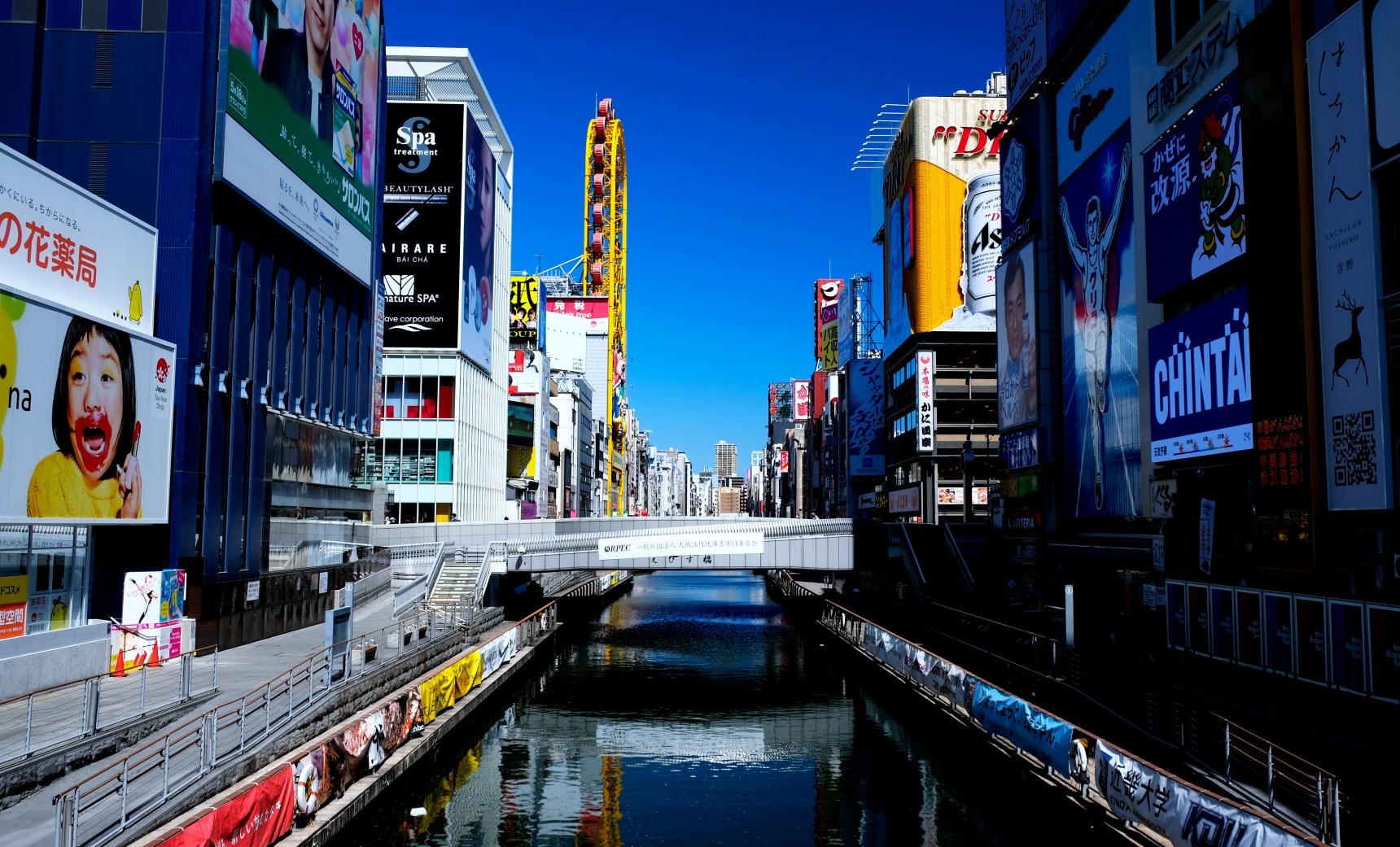The Importance of Continuing Social Distancing
The state of emergency has been lifted, and even in Tokyo businesses are gearing up to get back to business as usual. But that doesn't mean that the pandemic is over, or that the virus has miraculously disappeared. Read on to find out why social distancing needs to be observed, and how you can effectively do so in Japan.
By Robert KodamaWhat Is Social Distancing?
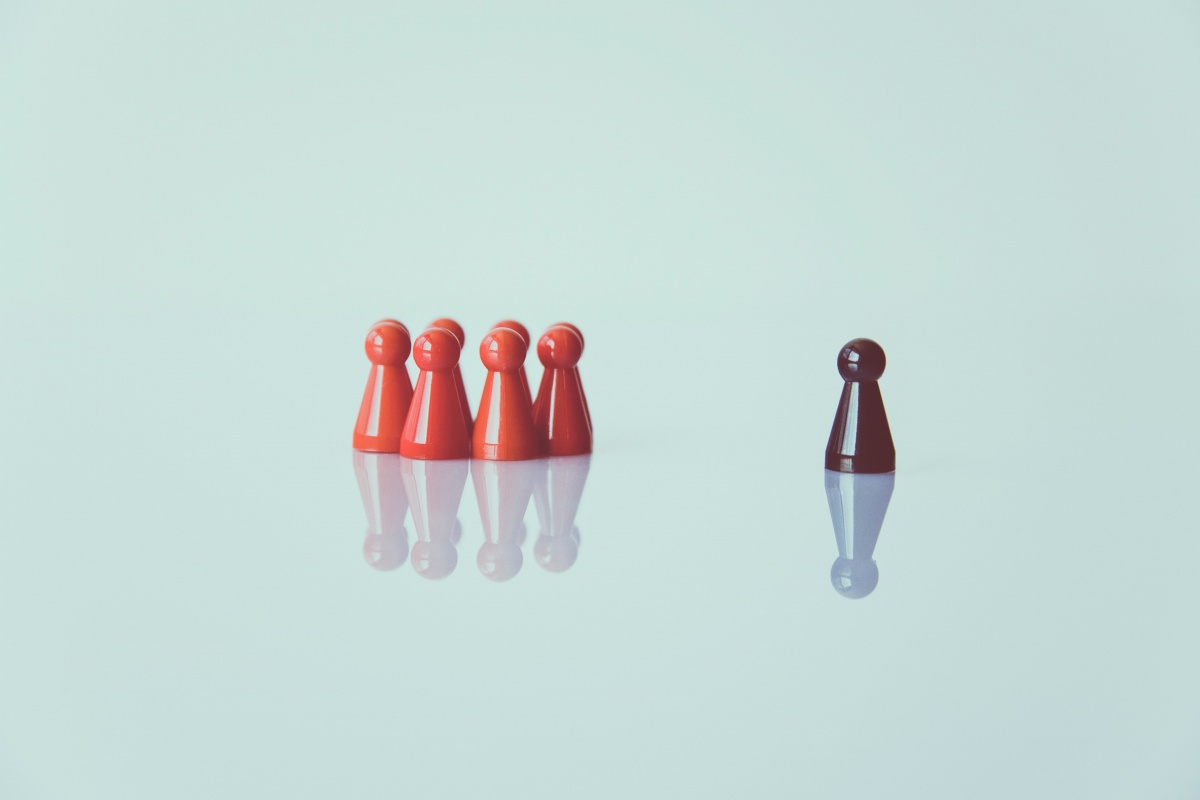
https://www.pexels.com/photo/crowd-reflection-color-toy-1679618/
Social distancing is a phrase popularized by the COVID-19 pandemic. The idea is to distance yourself from other people that do not live in the same household by at least two meters (or six feet). The logic behind this idea is that through effective social distancing, you can help limit the spread of the virus to other people who are vulnerable to the illness.
An experiment conducted by NHK has shown how microdroplets travel from one individual to another through sneezing or talking loudly with one another. These microdroplets contain high concentrations of the virus from someone who is infected, and if inhaled or entered through the eyes, it could pose a high risk of infection for that individual.
While there is no guarantee that social distancing will prevent the spread of infection, by keeping a two-meter distance between yourself and others, you will help limit the spread of infection. The further away you remain, the lower the concentration of the virus that is likely to spread.
Why Is It Still Important?
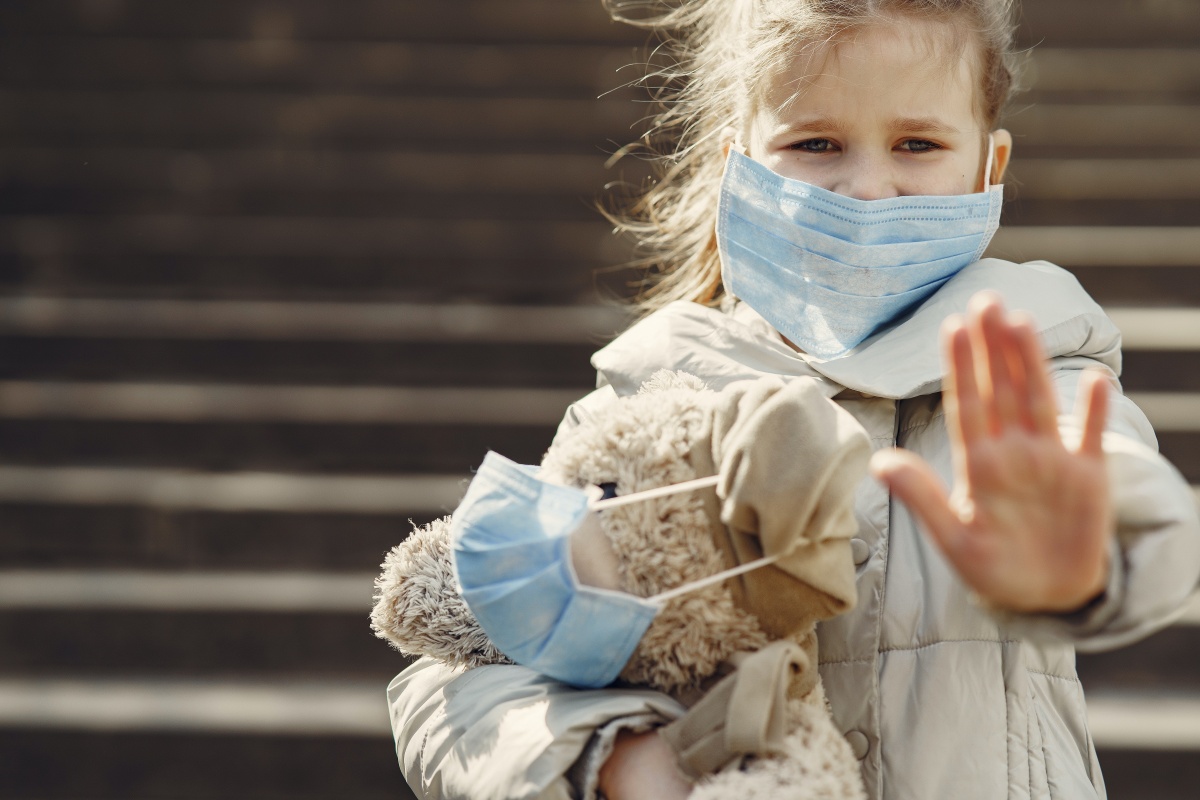
https://www.pexels.com/photo/woman-in-white-and-gray-floral-hijab-covering-her-face-with-blue-and-white-textile-4000605/
The state of emergency across Japan has been lifted due to all prefectures meeting the following requirements that the government has set out:
1. A decreasing trend in weekly recorded cases.
2. Less than or equal to 5 reported cases per 100,000 people in the most recent week.
3. Assessing the situation in neighboring prefectures.
4. A consistent decrease in patients with severe symptoms.
5. Availability of hospital beds.
6. Ability to effectively respond to a sudden increase in patients with severe symptoms.
7. An established system for conducting PCR tests.
However, there have been ongoing criticisms of the government's handling over the pandemic. These include a lack of testing for those showing COVID-19 symptoms, possibly leading to inaccurate reporting of actual cases in the country. Japan also did not enact a full lockdown as it was deemed to be unconstitutional.
Despite these criticisms, there has also been praise for widespread use of masks and generally good hygiene which may have attributed to low infections in the country. Businesses where large crowds gather in small spaces—clubs, music venues, theatres, gyms, etc.—had also closed during the state of emergency.
Such businesses have begun reopening and the general public may find themselves acting less precautious. While recorded cases appear low, there is still a need to take extra precautions. A lot of people have been found to be a carrier of the virus but have been asymptomatic. If you are one of these people, you will not even know that you carry the virus, nor will you be eligible for a PCR test. However, you risk passing it on to a vulnerable individual who may fall seriously ill as a result. The virus has not yet been eliminated.
Our Top Social Distancing Tips
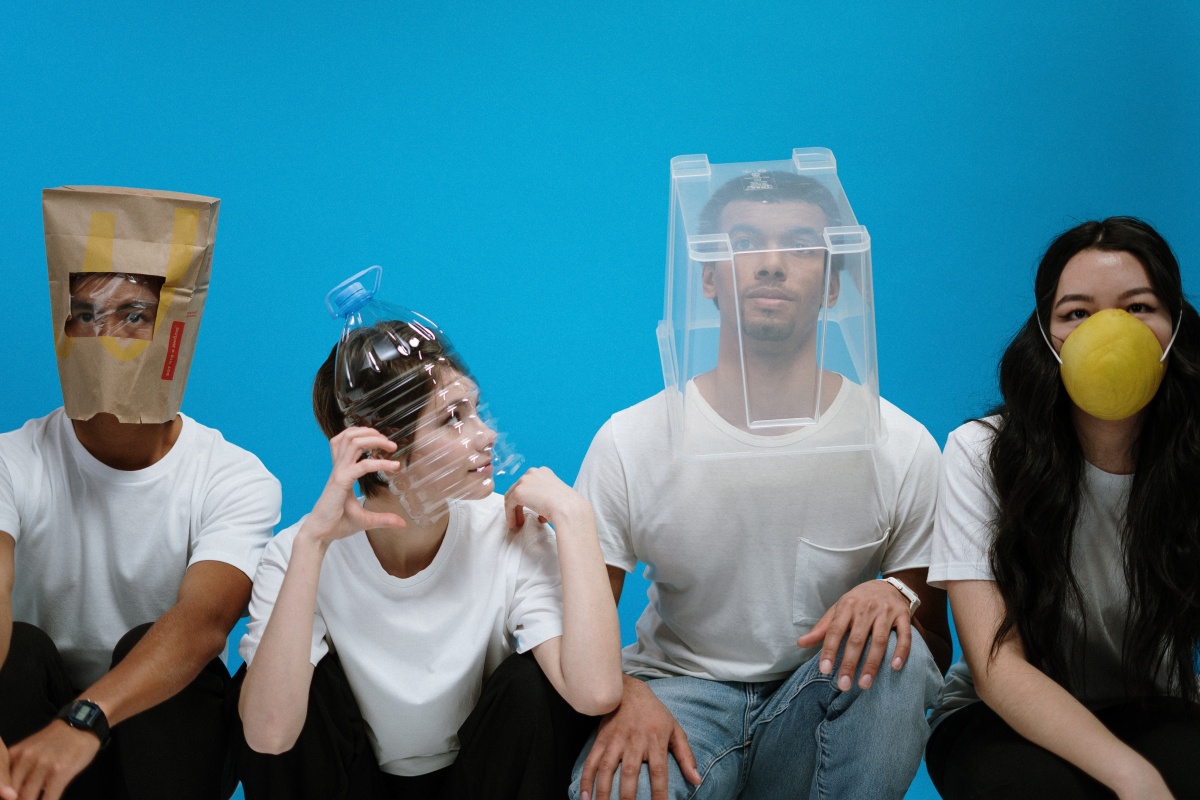
https://www.pexels.com/photo/people-wearing-diy-masks-3951628/
Many of us might feel like we want to do the right thing by social distancing but might feel a little unsure about the best practices. Here are some tips for you to effectively continue social distancing.
Continue to stay at least two meters apart
It is important to continue to stay two meters away from those who do not live in the same household as you, especially from those who are more vulnerable (e.g. elderly people and those with underlying health problems).
Avoid enclosed spaces
Stay away from enclosed spaces for prolonged periods as it will be difficult to maintain social distances effectively. If you must go into an enclosed area (e.g. grocery shopping), then limit your time indoors. If you must meet others, do so outdoors and away from crowds where possible.
Avoid crowded areas
Even if you are outdoors, it is best to avoid crowded areas as the risk is exponentially higher in such areas.
Continue/start teleworking
If your job has the option to stat or continue working from home, this will help limit your time in crowded indoor spaces and commuting on public transport. If you are unsure, ask your employers if this is an option.
Avoid public transportation
If you must commute, avoid public transport where possible. Walk or cycle to work as best alternatives.
Wear masks
Studies have shown that there are at least some benefits to wearing a mask to prevent the spread of the virus, as well as inhaling lower concentrations of it. Disposable masks have also returned to the shelves of some pharmacies and DIY stores across the country.
Wash your hands
Washing your hands with soap for at least 20 seconds has been recommended by experts, but use hand sanitizers when you can't wash. Though it may not be able to find effective sanitizers in the entrances of some stores, when you do, use them to your advantage. Spray your hands before entering to prevent spreading the virus onto items or stock in shops, and also spray your hands when exiting to limit the risk of having touched something with the virus.
The Reality of Daily Life
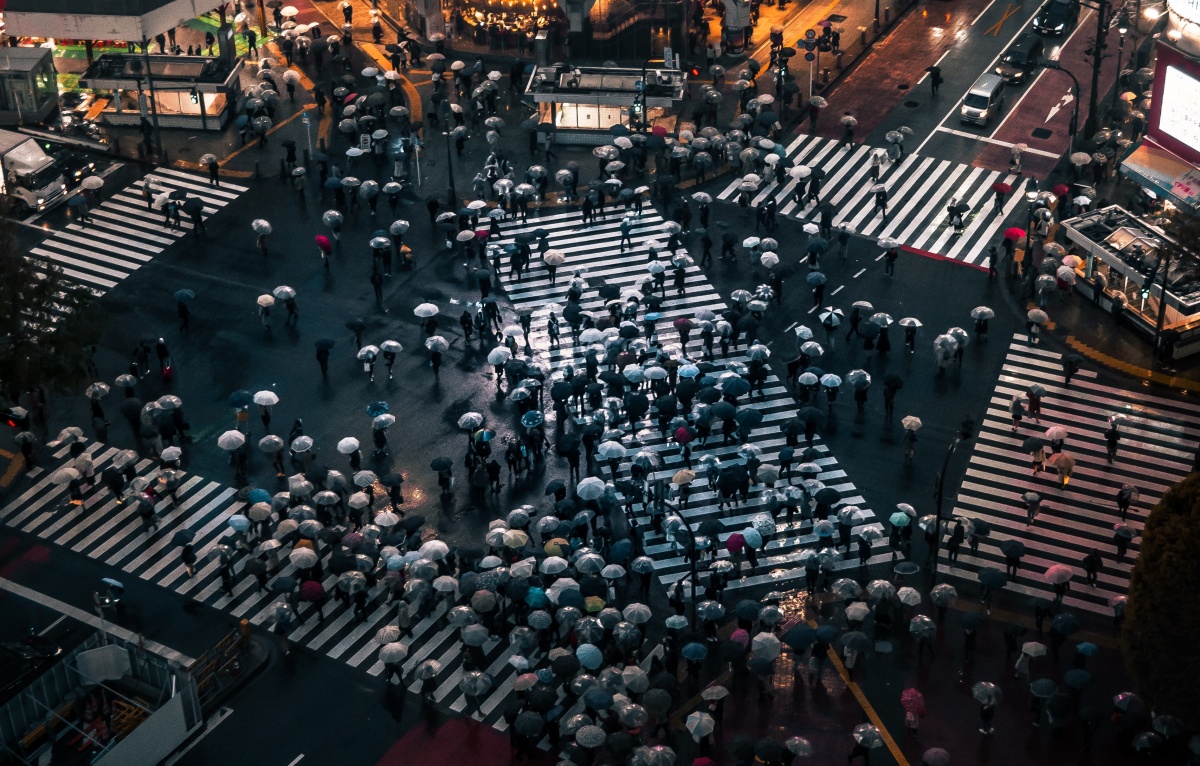
https://www.pexels.com/photo/aerial-photo-of-people-walking-on-road-3380920/
The realities of daily life might make it difficult for us to always observe social distancing. The concept of "the new normal" and "with corona" have been widely promoted on Japanese media as a way forward from the state of emergency while limiting the negative effects of halting the economy and livelihoods of many people.
If some of the best practices are unachievable because there are expectations and realities outside of your control, follow some of these tips to try and reach some form of balance.
1. If you need to commute on public transport, sit or stand near open windows and/or doors to allow for some fresh air where possible. Try to avoid rush hour where possible and ask your employers if there is a possibility of changing your start/end times.
2. Continue to wear masks indoors and even when you are outdoors. They may feel uncomfortable in the upcoming summer months but they can help prevent the spread of infection.
3. If you work in close proximity to others, ask if personal protective equipment (PPE) is available. This could range from face shields to plastic sheets between desks.
4. If you have been in enclosed spaces or around people for long periods of time during the day, wash your hands regularly throughout the day and take a shower as soon as you return home. Throw your clothes into the washing machine or basket as soon as you undress. Not only will this help keep you clean, but you will also feel refreshed after a day out in the humidity.
5. Some prefectures such as Osaka and Tokyo are doing a lottery to find volunteers for antibody testing. If your local area is also offering the antibody testing, sign up to find out if you have been infected before.
Useful Japanese Phrases
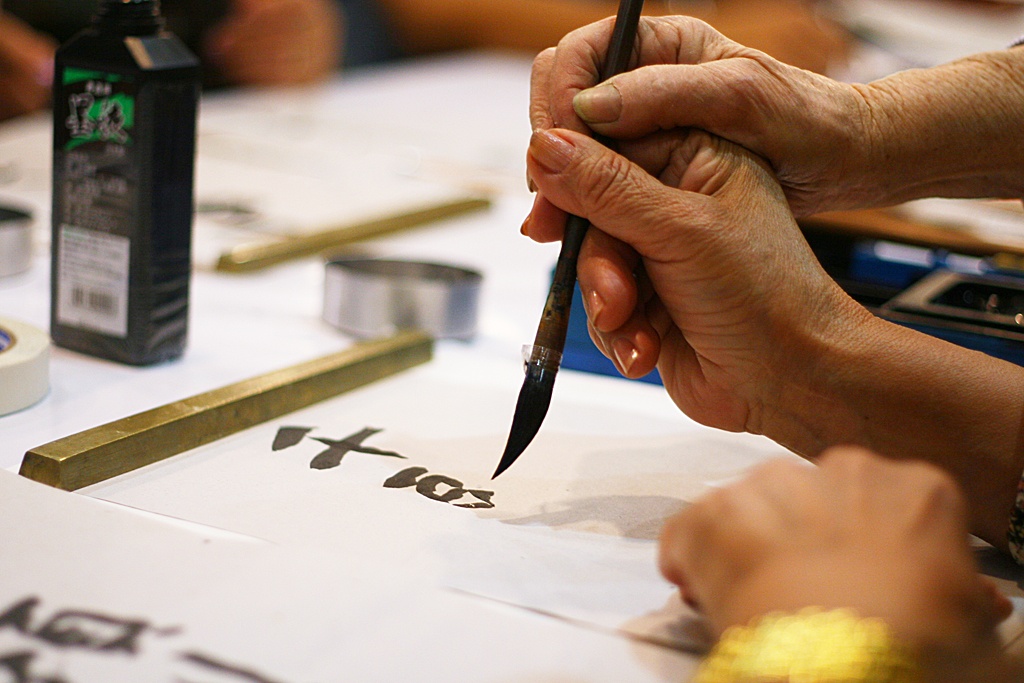
https://flic.kr/p/56NtwW
Here are some useful Japanese words and phrases during this pandemic.
Words and phrases to look out for:
Social distancing - sosharu disutansu - ソーシャルディスタンス
Coronavirus - shingata koronauirusu - 新型コロナウイルス
Infected person - kansen-sha - 感染者 (かんせんしゃ)
State of emergency - kinkyu jitai sengen - 緊急事態宣言 (きんきゅうじたいせんげん)
Pneumonia - haien - 肺炎 (はいえん)
Death toll - shishasuu - 死者数 (ししゃすう)
Mortality rate - chishiritsu - 致死率 (ちしりつ)
Words and phrases you can use:
I have a fever - netsu ga arimasu - 熱があります
I have a cough - seki ga arimasu - 咳が出ます
Please stay two meters away for social distancing purposes
sosharu disutansu no tame ni, ni metoru wo hanarete kudasai -
ソーシャル ディスタンスのために2メートルを離れてください


